21st CENTURY DEMOCRACY
Research on Media + Civic Discourse

"Young people in the United States have always been politically active and have long been early adopters of new technologies."
In this websection, MIT's School of Humanities, Arts, and Social Sciences draws on the expertise of our faculty and colleagues across the Institute to provide research-based insights and resources for strengthening democracy at home and around the world.
Democracy Homepage
Gallery of Publications
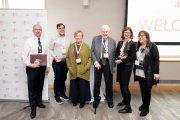
Shining a spotlight on local science journalism
The Knight Science Journalism program’s Victor K. McElheny Award honors outstanding local and regional journalists’ reporting on science, public health, tech, and the environment.
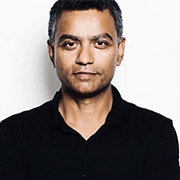
21st CENTURY DEMOCRACY
Better democracy through technology
Can machines make us better citizens and conversationalists? Deb Roy thinks so.
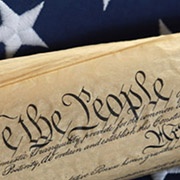
STRENGTHENING DEMOCRACY
A Sampler of MIT Research on U.S. Democracy
A distilled selection of key research, news, and media commentaries from the past year on the state of U.S. democracy, from scholars in MIT's humanities and social science fields. What can leaders and We, the People do to sustain our democracy? Prepared for 6 January 2022.
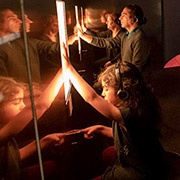
STEAM
Transformative truth-telling at the MIT Open Documentary Lab
The lab's artists and technology scholars are exploring representation and reality — and designing the future of storytelling.
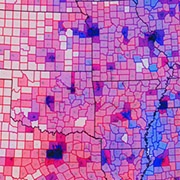
ELECTION 2020
3 Questions: Adam Berinsky on the responsibilities of political leadership and how to assess election polls
"It's the job of our leaders to stand up and challenge unsubstantiated rumors and outright falsehoods. Politicians have tremendous power to lead and to shape information, and voters need to remember this when they head to the polls — in this and every election."
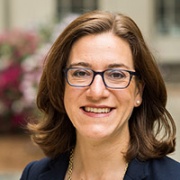
CLIMATE 2020 | HUMANISTIC PERSPECTIVES FROM MIT
Parrish Bergquist '19 | Civic Opinion
"The political challenges of addressing climate change are at least as thorny as the technological challenges, though in different ways."
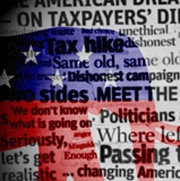
DEMOCRACY AND MEDIA
Does cable news shape your views?
MIT Political Science study finds partisan news coverage has a bigger impact on viewers without strong media preferences.

DEMOCRACY AND DISCOURSE
3 Questions: Media historian Heather Hendershot on U.S. political discourse
Media historian and expert on conservatism discusses the current state of political discourse and media in the U.S.
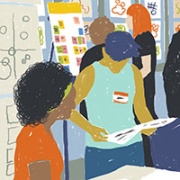
ELECTION INSIGHTS 2018
Sasha Costanza-Chock | On Media Technology and Immigration Policy
"The new wave of intersectional social movements, largely led by social media–savvy younger women and femmes of color, is the key to a transformation of our polity that represents the dreams and aspirations of the new millennial majority."

ELECTION INSIGHTS 2018
Justin Khoo | On Democracy and Civic Discourse
"Elections are helpful reminders (as if we needed any) that we do not all agree. We must somehow figure out how to get along despite our disagreements. In particular, we may wonder whether, and to what extent, we should tolerate views we disagree with. Is discursive intolerance, in some cases, required to promote a well-functioning marketplace of ideas?"
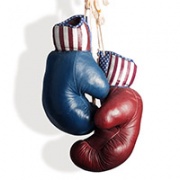
DEMOCRACY
Devin Caughey | On Contemporary Partisan Politics
"There are no easy solutions to polarization, but one possible way to ameliorate it is to make political parties stronger. One of the ironies of contemporary American politics is that partisanship is strong, but parties are, in important respects, weak."
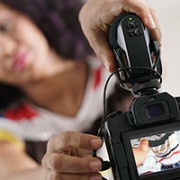
ELECTION INSIGHTS 2018
Jennifer Light | On Social Media and Youth Political Engagement
"Although discussions about youth and new media tend to assume that it is something about the technology itself that is responsible for political and social changes, in fact, the political possibilities associated with contemporary media are highly contingent upon societal power structures."

CITIZENSHIP | IMPACT OF LANGUAGE
Applying philosophy for a better democracy
In a new philosophy class, MIT students explore how language affects censorship, dissent, lies, and propaganda.
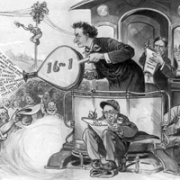
Election Insights 2016: Heather Hendershot on Political Rhetoric and Outsider Candidates
"As a historian of American political media, it is always my instinct to ask how we can use the past to understand the present, and, from this perspective it is useful to back up and consider how the rhetorical strategies of outsider candidates in earlier elections may help to put the Trump-Clinton election into context."
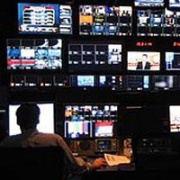
Election Insights 2016: Edward Schiappa on the Campaign Discourse
"The U.S. has a history of unseemly bursts of crude and deceitful campaign rhetoric, beginning with outrageous slander slung between John Adams and Thomas Jefferson in 1800. Nonetheless, the sense that this year’s election rhetoric is different than usual is well founded."